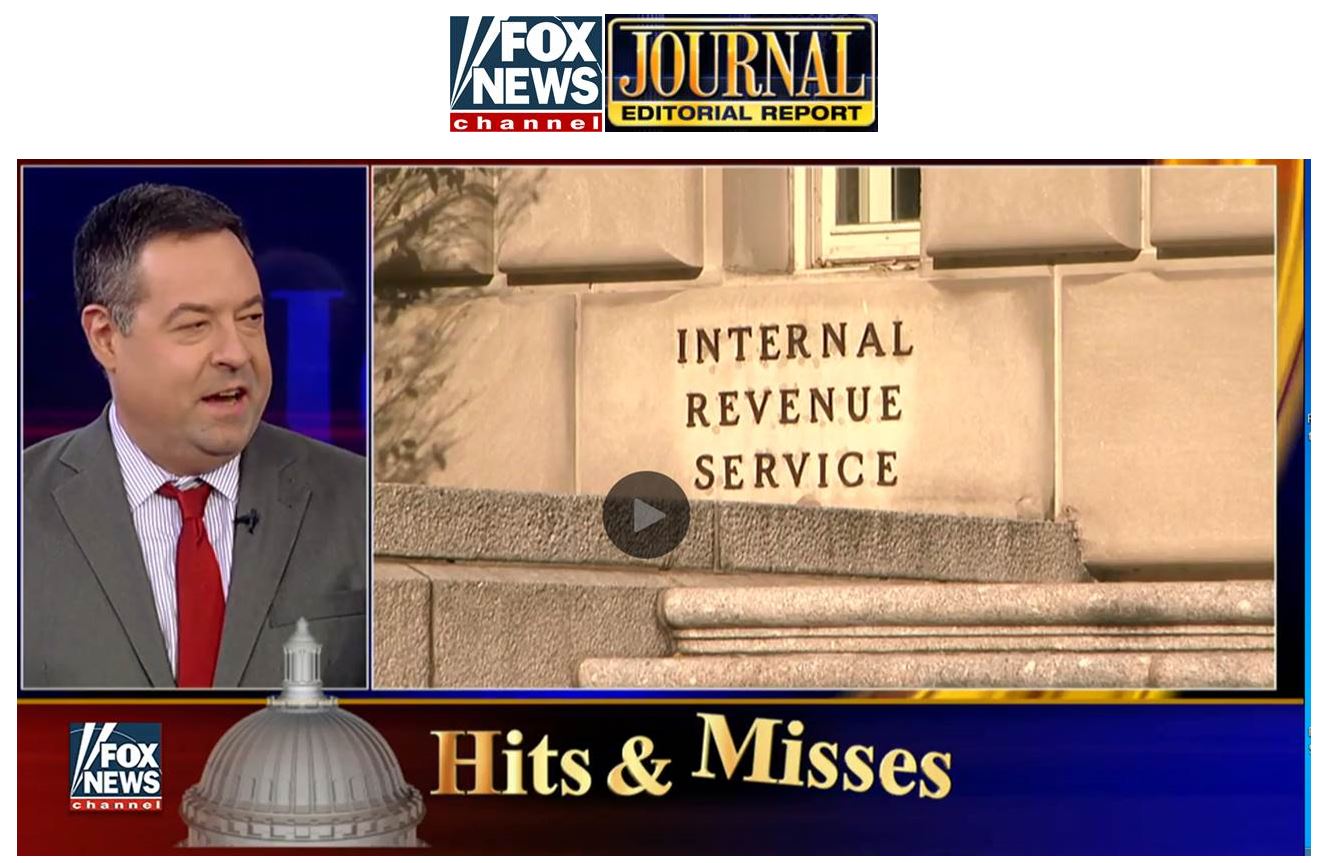Just as the Internal Revenue Service (“IRS”) targeting scandal was beginning to fade from Washington’s collective memory, it returned to the forefront of the national political scene with a vengeance. It started with the Department of Justice (“DOJ”) decision in early September to forgo further criminal investigation of Lois Lerner and other IRS officials because of allegedly insufficient evidence of “criminal intent.” Shortly thereafter, the Treasury Inspector General for Tax Administration’s (“TIGTA”) released an audit review that expanded upon the watchdog’s 2013 report, which had concluded the IRS inappropriately selected conservative tax-exempt applicants for heightened scrutiny based on their names and policy positions rather than objective criteria. TIGTA’s new report found that the IRS had similarly mistreated left-leaning groups. As my colleagues argued, TIGTA’s findings hardly diminished the import of the earlier investigation, but “widen[ed] the scope of IRS misconduct and increase[ed] the urgency for further changes at the agency.” More importantly, the report impliedly highlighted the absence of any serious attempts to root out the cause of IRS politicization.
While TIGTA announced its revised findings, the IRS rolled out a work plan for the Tax Exempt and Government Entities division—the component in which Ms. Lerner worked—which signaled efforts to develop “data-driven” criteria and “analytics” for IRS decision-making. That, of course, raised the curious question of what exactly the IRS meant by “data-driven” and what criteria it previously had been using to assess tax-exempt compliance. And this development was followed in quick succession by a DOJ announcement that it had reached a settlement agreement with some of the so-called “Tea Party” groups, who successfully argued their constitutional rights had been violated by the IRS. Finally, Commissioner Koskinen ended his tenure as head of the IRS and, on the way out the door, tried—yet again—to downplay TIGTA’s role in exposing IRS wrongdoing. “Sometimes they get a little carried away with their reports,” he suggested.
Lost in all this news—particularly, the DOJ decision not to reopen a criminal investigation—was the government’s stunning admission that confidential taxpayer data was, in fact, unlawfully disclosed by the IRS to the DOJ Public Integrity Section and the Federal Bureau of Investigation. As Cause of Action Institute (“CoA Institute”) reported last year, the DOJ Inspector General (“DOJ-OIG”) confirmed that “protected taxpayer information was included on compact discs (CDs) that the IRS provided to the Department [of Justice] in response to a Department request.” Those infamous twenty-one disks contained more than 1.1 million pages of return information on different tax-exempt groups. DOJ-OIG summarily concluded that the “matter does not warrant further investigation.” TIGTA, which was also alerted to the unlawful disclosure, refused to comment.
DOJ ostensibly sought this trove of non-public information as part of the Obama Administration’s efforts to prosecute exempt entities for engaging in prohibited political activity. Given the pattern of IRS abuse and politicization in previous administrations, however, those stated goals were always suspect, particularly given Ms. Lerner’s involvement. Now, in light of TIGTA’s revelations about the scope of the IRS’s targeting, progressives should be as alarmed as conservatives about the lack of accountability for one of the largest and most significant breaches of taxpayer confidentiality laws in U.S. history.
When it confirmed that taxpayer data had been mishandled, DOJ-OIG also claimed that DOJ informed Congress about the unlawful disclosure. We filed a Freedom of Information Act (“FOIA”) request last year to investigate the matter. That request has gone unanswered. We filed two additional follow-up requests last month (here and here), one of which also seeks records about the processing of the 2016 request. To date, the authorities have refused to hold anyone at the IRS or DOJ accountable for the wrongful disclosure of countless pages of Americans’ private tax information. The importance of these records cannot be overstated. CoA Institute remains committed to bringing them to public light.
Ryan P. Mulvey is Counsel at Cause of Action Institute
